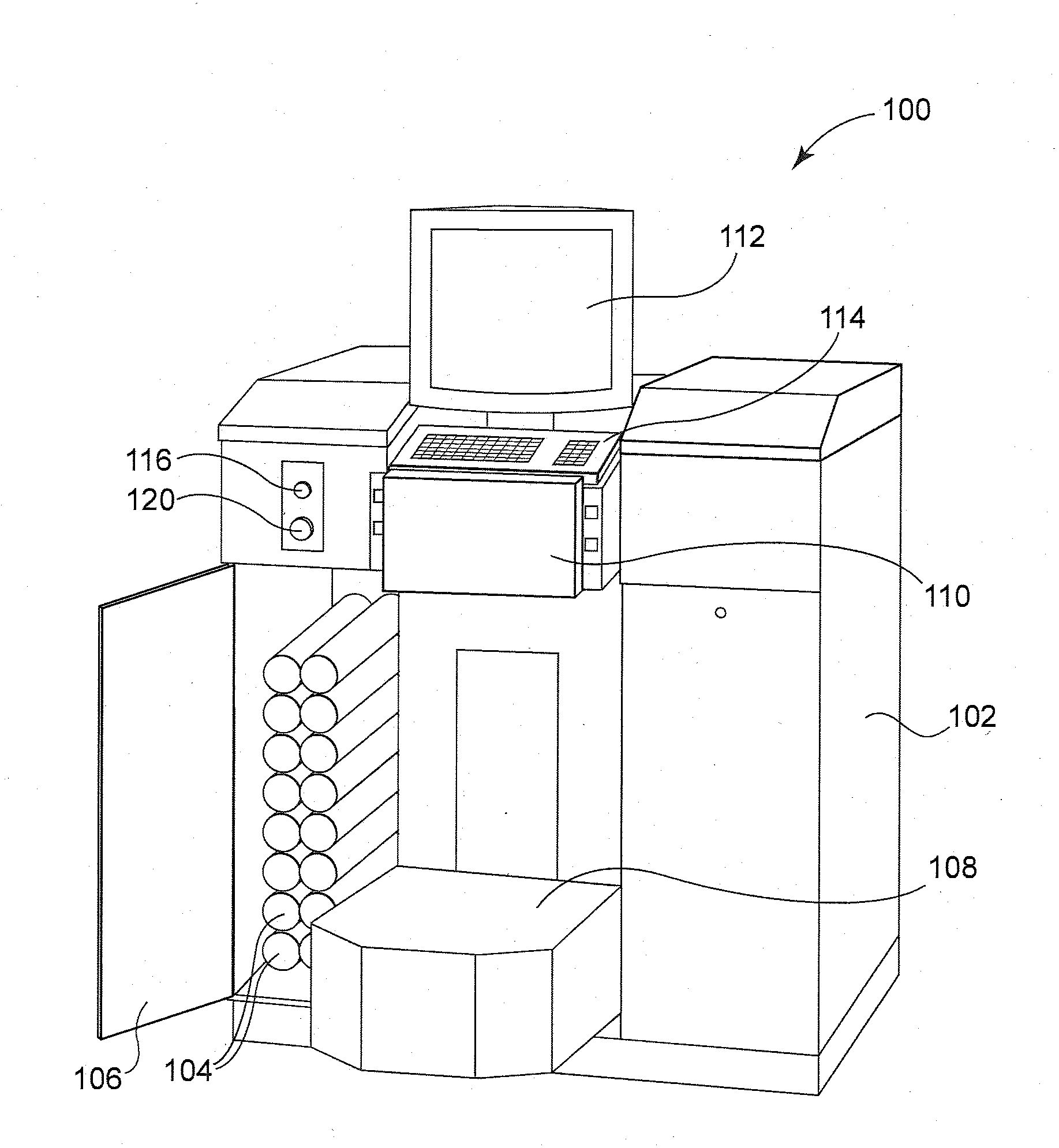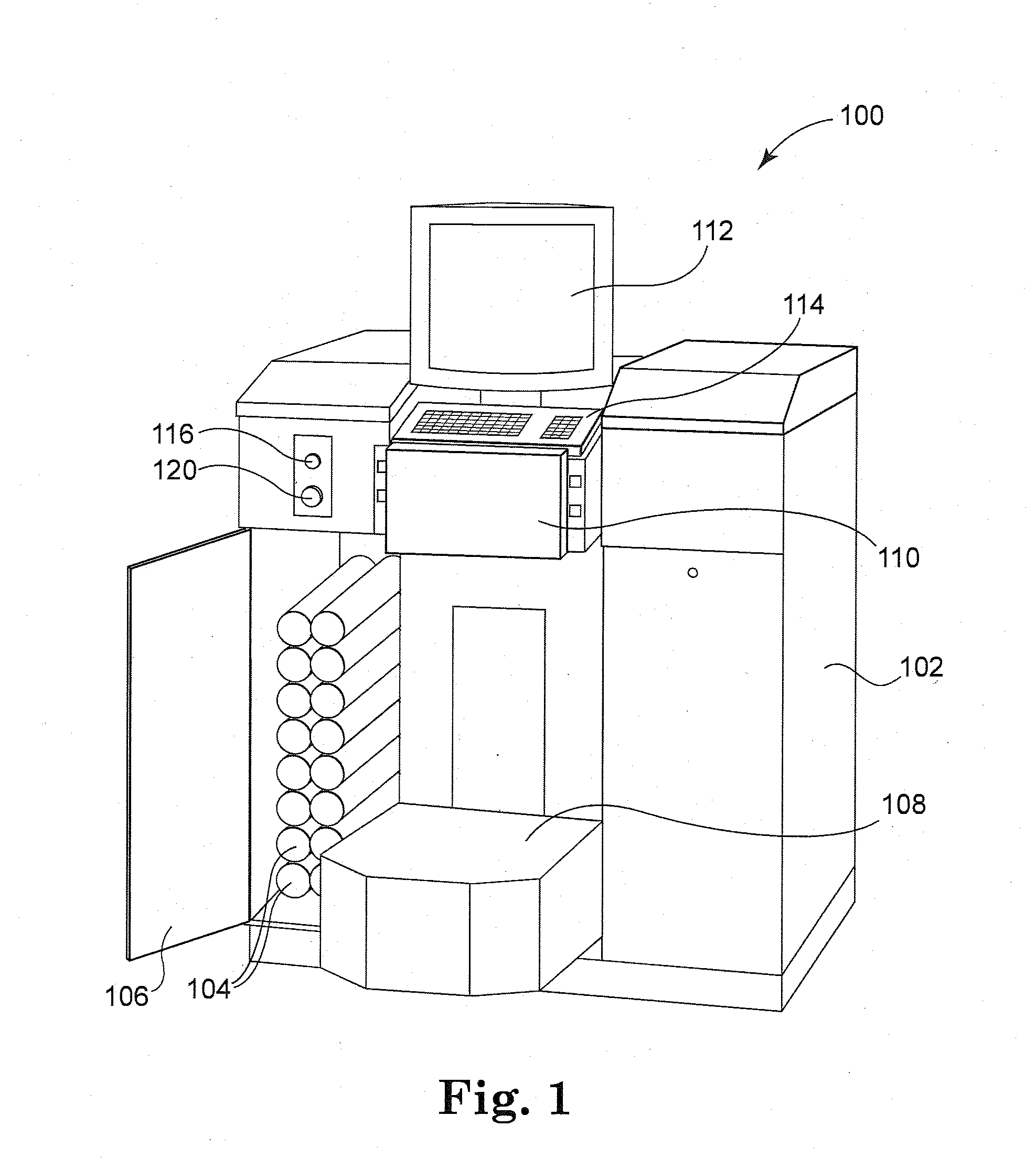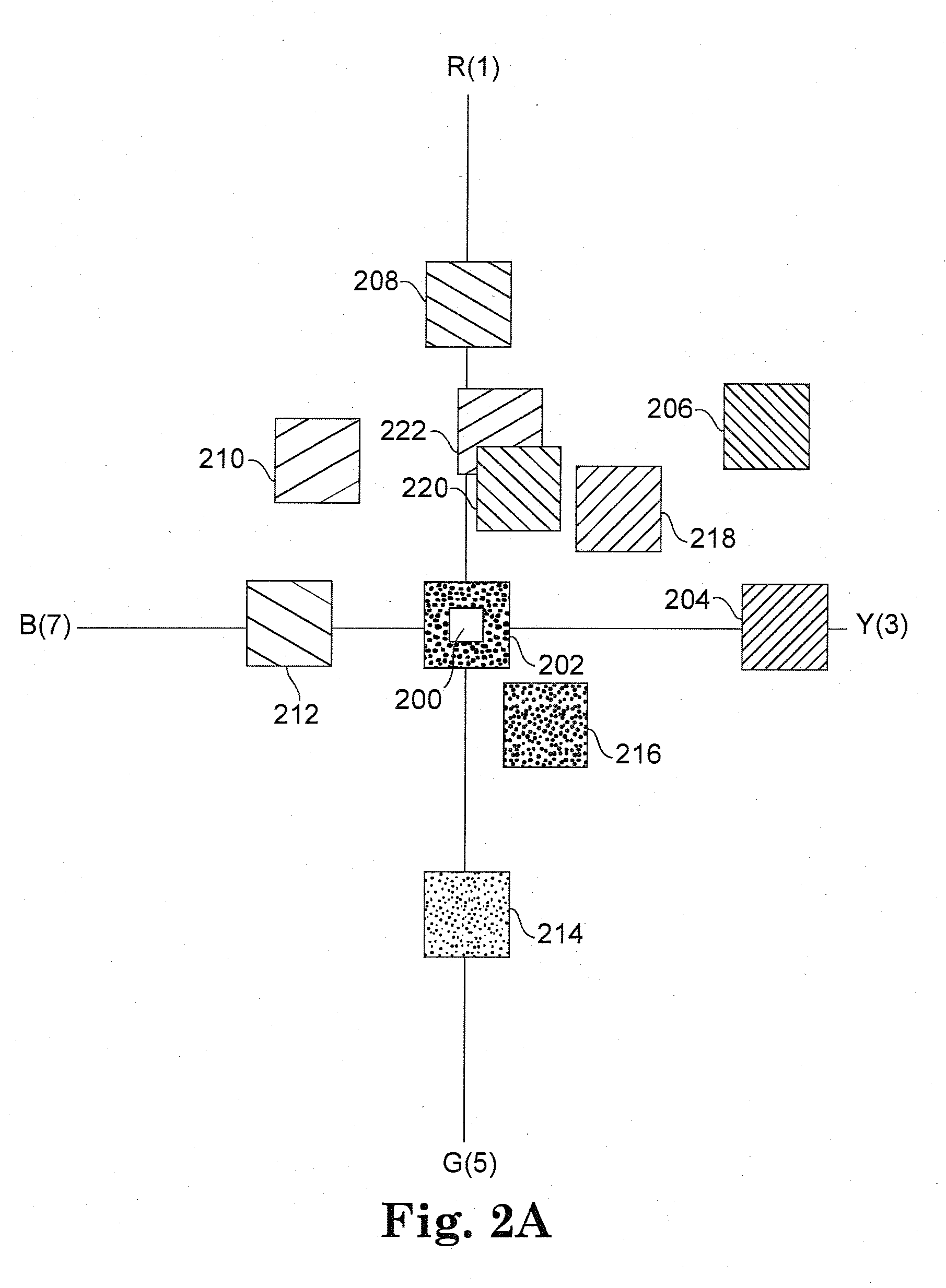Expanded color space architectural paint and stain tinting system
a technology for architectural paint and stain tinting, which is applied in the direction of liquid handling, instruments, packaged goods types, etc., can solve the problems of unsatisfactory large number of base paints or colorants, waste of resources, and increased so as to increase inventory levels and stocking complexity
- Summary
- Abstract
- Description
- Claims
- Application Information
AI Technical Summary
Benefits of technology
Problems solved by technology
Method used
Image
Examples
example 1
[0056]A 10 colorant array was prepared using the pigments shown below in Table 2:
TABLE 2ColorantColorant HuePigmentWt. % PigmentWhitePW653.1BlackPBK79.8GreenPG720.5BluePB15:213.1RedPR25418MagentaPR12211.9YellowPY7416.5Medium YellowPY74 + PY6536.1Yellow OxidePY4257.9Red OxidePR10159.8
The blue and green colorants respectively also contained 4.5% and 6.2% titanium dioxide which provided compensatory lightness to offset the higher pigment levels. Custom-tinted paints were prepared by mixing the above colorants with pastel and clear bases using an automated colorant dispenser capable of dispensing a 1 / 384 fluid ounce (0.077 cm3) minimum dispensing quantity. A lighter pastel green could be obtained when dispensing a 1 / 384 fluid ounce minimum quantity of the green colorant shown in Table 1 into 1 gallon (3.8 L) of pastel base than could be obtained when dispensing a 1 / 96 fluid ounce (0.31 cm3) minimum quantity of a comparison single strength green colorant containing 11.5% PG7 green. A lig...
example 2
[0057]Triple strength versions of the magenta and blue colorants shown in Table 1 were prepared using 23.4 wt. % PR122 pigment for the magenta colorant and 25.4 wt. % PB15:2 pigment for the blue colorant. Using an automated dispenser with a 1 / 1024 fluid ounce (0.029 cm3) minimum dispensing quantity, a lighter pastel magenta or blue could be made using the triple strength colorants and 1 gallon of pastel base, and a darker more saturated magenta or blue could be made using the triple strength colorants and 1 gallon of clear base, than could be obtained by dispensing the comparison single strength colorants using a 1 / 96 fluid ounce (0.31 cm3) minimum quantity dispenser.
example 3
[0058]Additional colorants for use with transparent stains were prepared using the pigments shown below in Table 3:
TABLE 3ColorantColorant HuePigmentWt. % PigmentTransparent Yellow Iron OxidePY4230Transparent Red OxidePR10135.2Dark, Saturated MagentaPR12210.6
The Table 3 colorants were dispensed using an automated dispenser with a 1 / 384 fluid ounce (0.077 cm3) minimum dispensing quantity into a clear base in amounts up to 12 oz. (0.35 L) per gallon to provide a low hiding but UV resistant transparent protective coating through which the natural grain patterns of underlying wood surfaces were visible.
PUM
| Property | Measurement | Unit |
|---|---|---|
| Volume | aaaaa | aaaaa |
| Volume | aaaaa | aaaaa |
| Volume | aaaaa | aaaaa |
Abstract
Description
Claims
Application Information
 Login to View More
Login to View More - R&D
- Intellectual Property
- Life Sciences
- Materials
- Tech Scout
- Unparalleled Data Quality
- Higher Quality Content
- 60% Fewer Hallucinations
Browse by: Latest US Patents, China's latest patents, Technical Efficacy Thesaurus, Application Domain, Technology Topic, Popular Technical Reports.
© 2025 PatSnap. All rights reserved.Legal|Privacy policy|Modern Slavery Act Transparency Statement|Sitemap|About US| Contact US: help@patsnap.com



